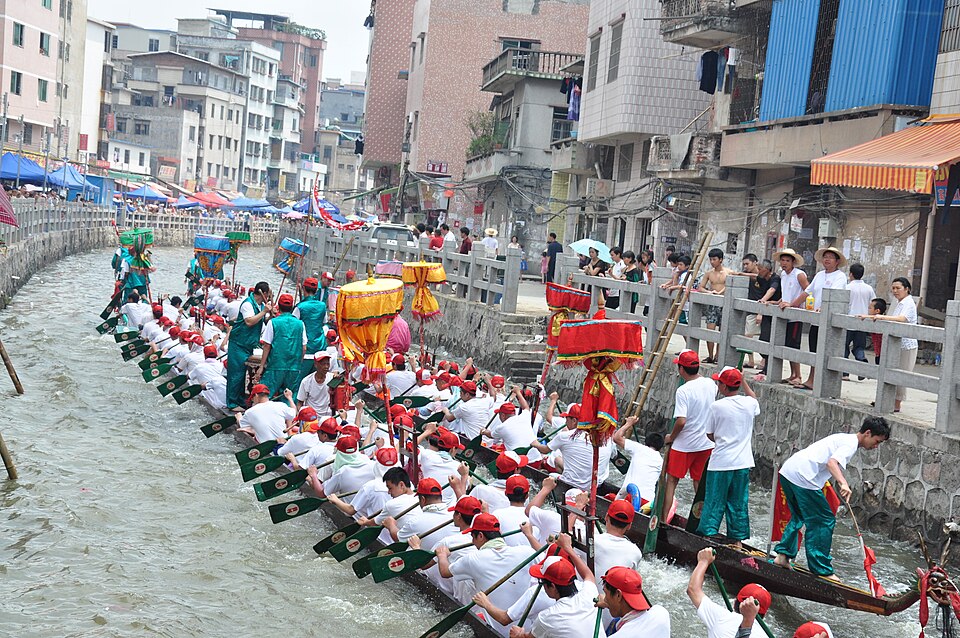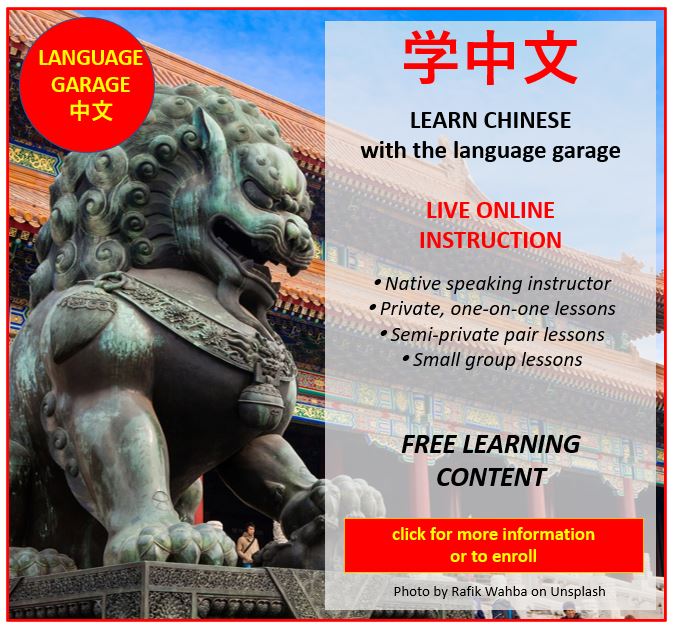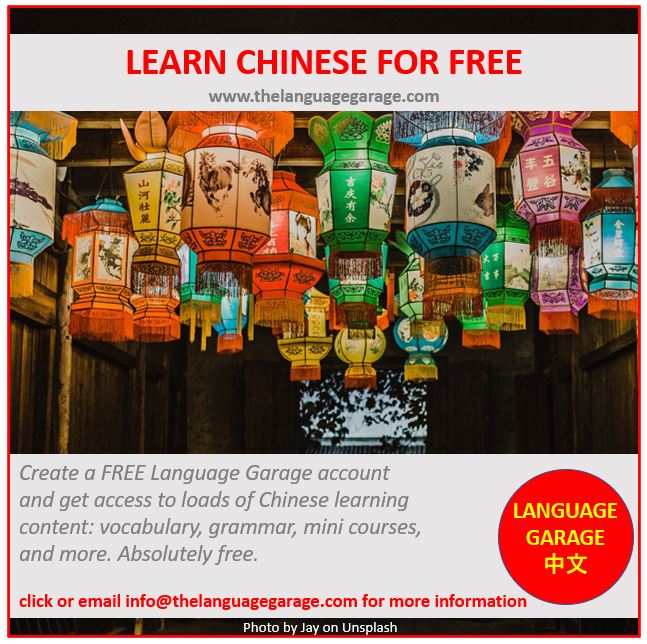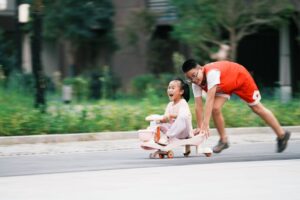China’s Dragon Boat Festival: Origins, Traditions, and Celebrations
China’s Dragon Boat Festival, 端午节 Duānwǔ Jié, is one of the oldest and most culturally rich traditional holidays in China. People celebrate it on the fifth day of the fifth lunar month, which usually falls in June on the Gregorian calendar. The festival combines commemoration, health rituals, and community activities. Its vibrant blend of history and contemporary festivity makes it a beloved event across the country and among Chinese communities worldwide.
Origins and History of China’s Dragon Boat Festival
The most well-known origin story of端午节 Duānwǔ Jié dates back over 2,000 years to 战国时期 Zhànguó Shíqī (the Warring States Period.) It centers on 屈原 Qū Yuán, a patriotic poet and minister of the state of Chu. After being exiled due to corrupt court politics and witnessing his country’s decline, Qu Yuan drowned himself in the 汨罗江 Mìluó Jiāng (Miluo River) in despair. The local people admired him greatly and raced out in boats to try to save or recover him. They threw 粽子 zongzi (rice dumplings) into the water to keep fish and evil spirits from his body. This is said to be the origin of the dragon boat races and the custom of eating zongzi.
Qū Yuán is the central figure in most accounts of the origins of China’s Dragon Boat Festival. But some regions also associate the festival with other historical or mythical figures, such as the general and politician of the Wu Kingdom 伍子胥Wǔ Zǐxū. According to other interpretations, the festival’s source is the dragon totem worship of ancient southern peoples. This gives the festival layered regional interpretations.
Cultural Significance of China’s Dragon Boat Festival
端午节 Duānwǔ Jié has long been more than a memorial. Traditionally, it is also a time to ward off disease and evil spirits during the hot, humid summer months. For centuries, it has been linked to seasonal changes, health preservation, and protecting the home from misfortune. People hang 艾草 àicǎo (mugwort) and 菖蒲 chāngpú (calamus) on their doors to repel insects and negative energy.
The festival is not just significant in China. In 2009 it gained official recognition as a UNESCO Intangible CulturalHeritage. This is a reflection of its deep cultural roots and modern importance.
Modern Celebrations and Traditions
Today, China’s Dragon Boat Festival is a public holiday in China. People celebrate it with a variety of regional customs.
Dragon Boat Racing (龙舟赛 Lóngzhōu Sài)
In cities and towns along rivers, vibrant and competitive dragon boat races are a major highlight. Teams paddle long, ornately carved boats resembling dragons to the beat of drums. The races are both a sporting event and a cultural ritual. They symbolize unity, strength, and the quest to honor Qu Yuan.
Eating Zongzi (吃粽子 Chī zòngzi)
Zongzi are sticky rice dumplings wrapped in bamboo or reed leaves. They often contain a filling of 红豆沙 hóngdòushā (sweet red pean paste), 猪肉 zhūròu (pork), or 咸蛋黄 xiándànhuáng (salted egg yolk). Families may make their own or buy them in markets. Making zongzi is often a multi-generational group activity that brings families together.
Herbal Traditions and Charms
Many people still hang 香包 xiāngbāo (herbal sachets) or wear them around the neck. They serve as protective talismans for children. They often contain fragrant herbs believed to fight off illness and bad luck.
Realgar Wine (雄黄酒 Xiónghuáng Jiǔ)
雄黄酒 Xiónghuáng Jiǔ (realgar wine) is a type of yellow rice wine dosed with realgar, an arsenic sulfide mineral. Traditionally, people believed that realgar wine was able to expel evil spirits or poisons. People consumed it or drew symbols with it on children’s foreheads for protection. However, consumption of this beverage is less common today due to concerns over toxicity.
A Celebration of Legacy and Vitality
端午节 Duānwǔ Jié (China’s Dragon Boat Festival) is more than a mere holiday. It reflects China’s rich cultural identity, where reverence for history, health, and community intertwine. Chinese people may celebrate it in many different ways. They may watch the powerful strokes of a dragon boat team, taste a lovingly prepared zongzi, or simply enjoy time with family and friends. No matter what, participants connect with age-old values of loyalty, resilience, and family. As modern China continues to evolve, traditions like the Dragon Boat Festival help preserve its spiritual and cultural heritage for generations to come.
Get on the road to speaking Chinese with the Language Garage!
We hope you’ve enjoyed learning about China’s Dragon Boat Festival. If you’d like to learn more:
- Follow us on Facebook, LinkedIn, BlueSky, Twitter, Threads, Mastodon, Instagram, or Pinterest. We publish lots of Chinese vocabulary, grammar, and culture notes, so it’s a great way to pick up some new vocabulary and practice.
- Check out our other posts on Chinese language, culture, and more.
- Enroll in affordable, flexible, and personalized private online Chinese lessons or sign up for a small group online Chinese class.
- Create a free Language Garage account to access tons of Chinese vocabulary, grammar, and culture.
Image Source Wikimedia Commons






